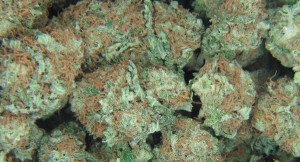
The legalization of marijuana for medical purposes has led to a significant reduction in violent crime in several US states bordering Mexico, according to new research.
The study, published in The Economic Journal, found that the rate of violent crime – including robberies, murders and aggravated assaults – fell by 12.5 per cent in counties close to the border after the introduction of medical marijuana laws (MMLs).
“MMLs allow people to grow and cultivate marijuana plants legally within the US,” Professor Evelina Gavrilova, one of the study’s authors, told The Independent.
“This means that people don’t need to buy illegal marijuana anymore so drug trafficking organisations (DTOs) have far fewer customers.”
DTOs have long been a major contributor to violent crime in US border states.
“Their namesake activity – the smuggling of illicit drugs – is known to be paired with extreme levels of violence, which DTOs use to contest the revenues in the drug market,” according to the study.
Click Here and Enter To Win A Free Glass Pipe!
With these organisations now less active in the border regions due to falling demand, instances of violence have also fallen. “As revenues decrease, so does the incentive to invest in violent activity,” the paper says.
Robberies have decreased by 19 per cent in US border states which have adopted MMLs, murders by 10 per cent and assaults by nine per cent.
The biggest impact is on drug-law related murders, which have fallen by nearly 41 per cent. Countries closest to the border have seen the most significant reductions.
Eight US states have legalized the recreational use of marijuana, including California, one of four states that border Mexico. Two of the others – New Mexico and Arizona – both have MMLs.
Most illicit drugs in the US are supplied through Mexico. Every year, around six billion dollars crosses the border back to Mexico as profit for DTOs.
The market for marijuana is the largest drug market in the US and has always been a “lucrative cash crop” for DTOs, according to the study.
“It’s very likely that they are not going to simply give up on this market,” said Professor Gavrilova. “There are reports that some DTOs are starting to grow their own opium, which could be used to produce heroin that is smuggled into the US.
“They could also enter the legal marijuana trade themselves by setting up farms in a border state.”
Although MMLs do not allow for recreational use of the drug, “there can be a low threshold for prescription, depending on the state,” according to Professor Gavrilova.
This means that – even in those states without full legalization – the consumption of marijuana is virtually decriminalized, she explained.
This accounts for the rapid fall in demand for illegal marijuana, even in states such as Arizona and New Mexico, where recreational use has not been legalized.
